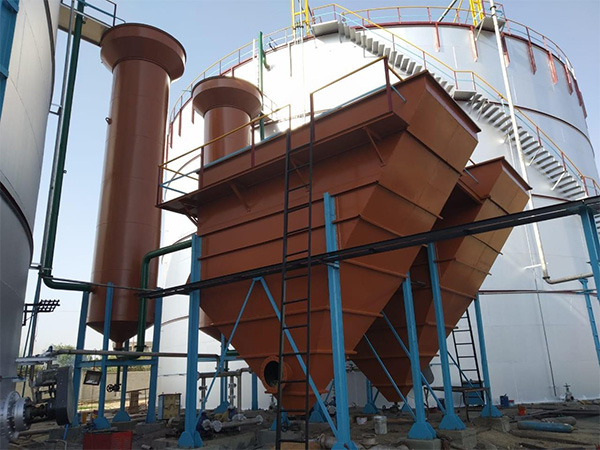Several prominent Indian companies are investing in setting up Compressed Biogas (CBG) plants across the country, with major players such as Indian Oil Corporation, Bharat Petroleum, Adani Group, EcoYou – Energy Division, Reliance Bioenergy, and Oil India, to name a few, leading the way.
In a significant move towards sustainable industrial growth, EcoYou – Ecoboard Industries Limited’s Energy Division has positioned itself as a global leader in large-scale Biogas/CBG (Compressed Biogas) projects. With over 125 ultra-large biogas digester installations globally, EcoYou’s systems process an impressive annual capacity of 20 million cubic meters of industrial effluents, including dairy waste, spent-wash, and agro-waste. These projects are setting new standards in environmental conservation and resource recovery.
India, a country rich in agriculture and experiencing rapid industrial growth, faces growing challenges from untreated solid waste such as agro-fibers and liquid waste from industries. These pose significant threats to both the environment and public health, making the need for efficient, large-scale waste treatment more urgent than ever.
EcoYou is tackling these challenges by deploying advanced technology partnerships. The company’s Dry Digestor systems, developed in collaboration with Ruckert Naturgas (Germany), are designed to handle solid waste, while its Wet Digestor systems—based on Swiss technology—are specifically engineered for high-load liquid waste. Additionally, EcoYou has teamed up with KP Engineering to provide Zero Liquid Discharge (ZLD) solutions. Through these innovations, EcoYou is turning industrial waste into bio-CBG, contributing to environmental protection, energy security, and economic development.
In line with India’s government initiative, the SATAT (Sustainable Alternative Towards Affordable Transportation) scheme, EcoYou’s clients are actively converting raw biogas into purified bio-CBG for use in industrial and vehicular applications.
“At EcoYou, we help our customers turn waste into wealth. It’s not just about compliance; it’s about protecting nature, supporting communities, and building a sustainable future,” said G. Ramakrishna Raju, Managing Director of EcoYou. “Effluent treatment is essential—not just for reducing fossil fuel dependence, but also for advancing circular economy practices. Our digesters alone help save approximately 0.5 million tons of coal each year, significantly reducing greenhouse gas emissions.”
EcoYou’s biogas systems use Sulzer-based Continuous Stirred Tank Reactor (CSTR) technology, which is renowned for its energy-efficient performance in complex industrial environments.
“In India, where industrial growth is accelerating, managing solid and liquid waste responsibly is crucial to safeguarding our rivers, groundwater, and ecosystems,” added Praveen Gottumukkala, Technical Advisor at EcoYou. “Globally, our systems help industries reduce their carbon footprint while embracing circularity. This is sustainable progress that benefits the planet, people, and profits.”
Beyond energy production, EcoYou’s projects offer substantial environmental and economic benefits. By enabling the reuse of treated water, industries reduce their dependence on freshwater and lower operational costs. The systems also support organic composting and the conversion of sludge into energy, aligning with India’s sustainability goals, including the National Water Mission, Swachh Bharat, and various UN Sustainable Development Goals (SDGs).
Countries like Germany, Japan, and the Netherlands have been leaders in adopting stringent discharge norms and biogas/ZLD systems, with advanced technologies like membrane bioreactors (MBRs), advanced oxidation processes (AOPs), AI-powered monitoring, and real-time analytics playing a central role. In these countries, treated wastewater is often reused for agriculture, while sludge is processed into energy or compost, backed by strong digital infrastructure and regulatory enforcement.
India is quickly catching up, with growing adoption of dry and wet digestors and ZLD technologies, particularly among large industries. However, challenges such as cost sensitivity and limited awareness remain, especially in Tier 2 and Tier 3 cities. Although the government mandates Online Continuous Emission Monitoring Systems (OCEMS), there is still room for improvement in ensuring data integrity and enforcement.
Despite these hurdles, the shift towards resource recovery and renewable energy, including CBG, is gaining momentum. More companies are integrating bio-CBG projects into their ESG (Environmental, Social, and Governance) and CSR (Corporate Social Responsibility) frameworks, making sustainability a core part of their business strategy.
Based in Pune, Maharashtra, EcoYou is playing a key role in shaping the future of India’s environmental and industrial landscape. With clients across sectors such as chemicals, pharmaceuticals, textiles, distilleries, and food processing, EcoYou ensures that industrial growth and ecological responsibility are inextricably linked.















